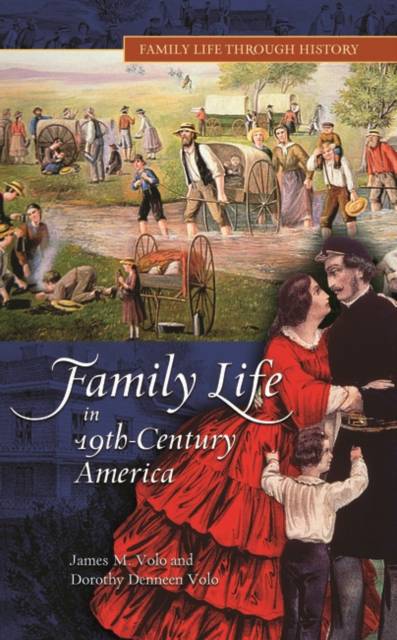
- Afhalen na 1 uur in een winkel met voorraad
- Gratis thuislevering in België vanaf € 30
- Ruim aanbod met 7 miljoen producten
- Afhalen na 1 uur in een winkel met voorraad
- Gratis thuislevering in België vanaf € 30
- Ruim aanbod met 7 miljoen producten
Omschrijving
Nineteenth century families had to deal with enormous changes in almost all of life's categories. The first generation of nineteenth century Americans was generally anxious to remove the Anglo from their Anglo-Americanism. The generation that grew up in Jacksonian America matured during a period of nationalism, egalitarianism, and widespread reformism. Finally, the generation of the pre-war decades was innately diverse in terms of their ethnic backgrounds, employment, social class, education, language, customs, and religion. Americans were acutely aware of the need to create a stable and cohesive society firmly founded on the family and traditional family values. Yet the people of America were among the most mobile and diverse on earth. Geographically, socially, and economically, Americans (and those immigrants who wished to be Americans) were dedicated to change, movement, and progress. This dichotomy between tradition and change may have been the most durable and common of American traits, and it was a difficult quality to circumvent when trying to form a unified national persona.
Volumes in the Family Life in America series focus on the day-to-day lives and roles of families throughout history. The roles of all family members are defined and information on daily family life, the role of the family in society, and the ever-changing definition of family are discussed. Discussion of the nuclear family, single parent homes, foster and adoptive families, stepfamilies, and gay and lesbian families are included where appropriate. Topics such as meal planning, homes, entertainment and celebrations, are discussed along with larger social issues that originate in the home like domestic violence, child abuse and neglect, and divorce. Ideal for students and general readers alike, books in this series bring the history of everyday people to life.Specificaties
Betrokkenen
- Auteur(s):
- Uitgeverij:
Inhoud
- Aantal bladzijden:
- 440
- Taal:
- Engels
- Reeks:
Eigenschappen
- Productcode (EAN):
- 9780313337925
- Verschijningsdatum:
- 30/08/2007
- Uitvoering:
- Hardcover
- Formaat:
- Ongenaaid / garenloos gebonden
- Afmetingen:
- 165 mm x 235 mm
- Gewicht:
- 816 g

Alleen bij Standaard Boekhandel
Beoordelingen
We publiceren alleen reviews die voldoen aan de voorwaarden voor reviews. Bekijk onze voorwaarden voor reviews.











